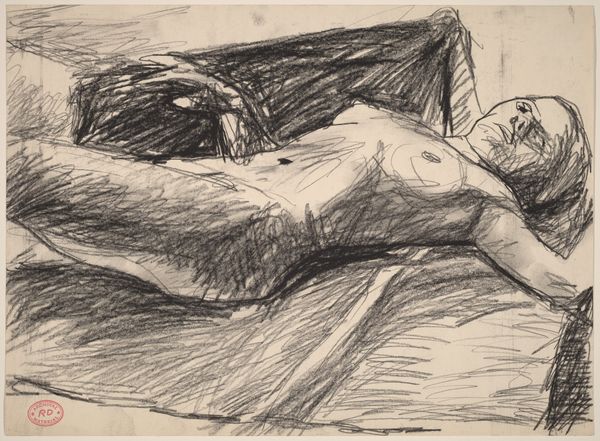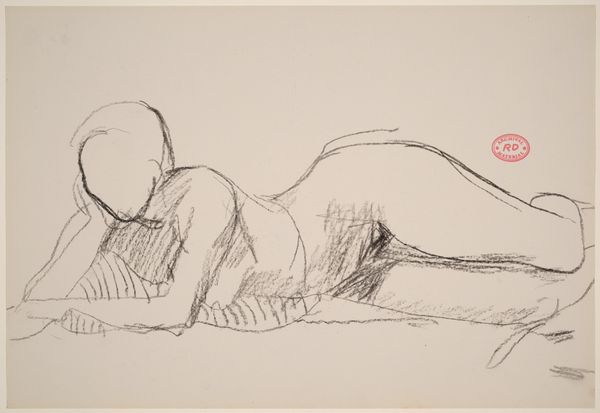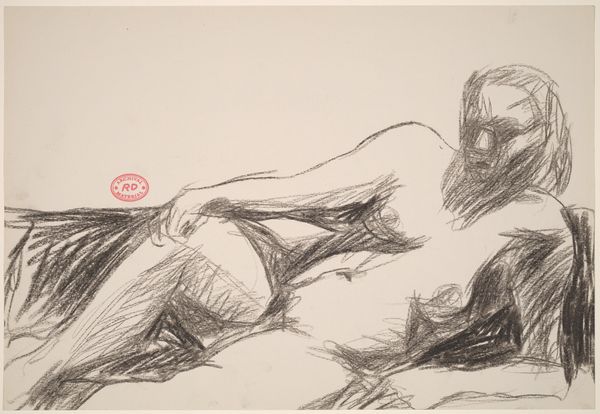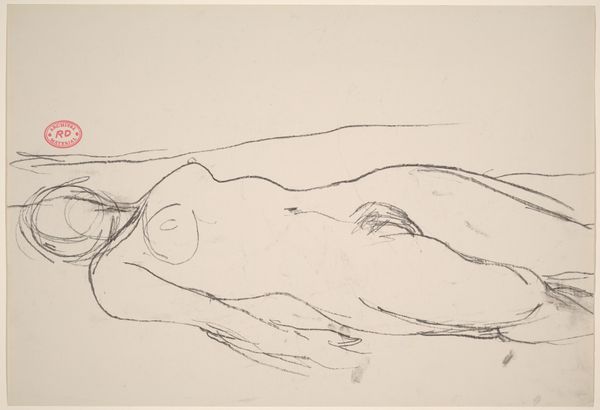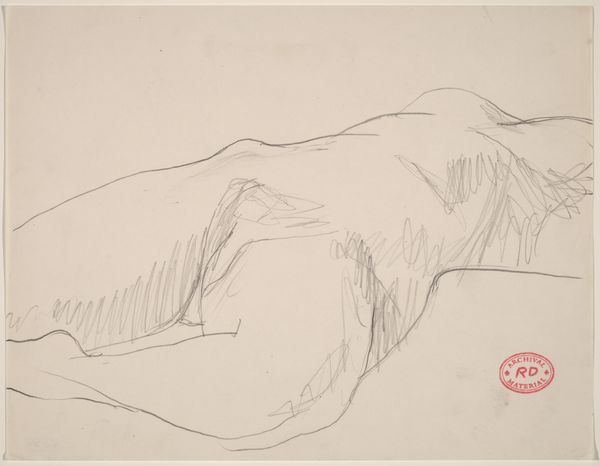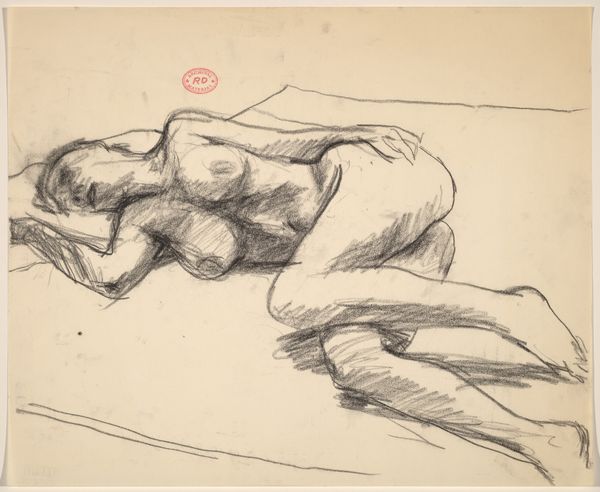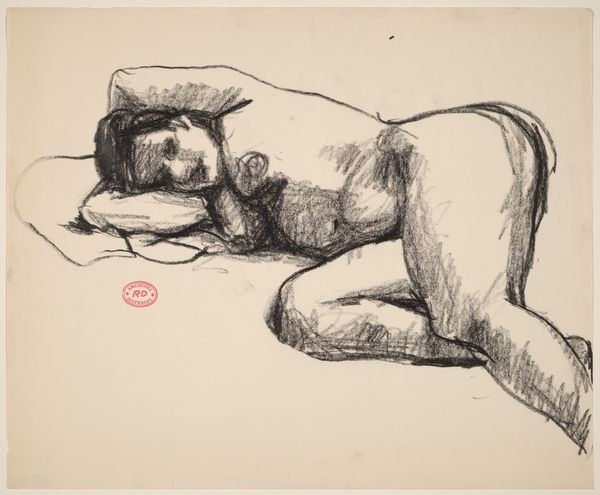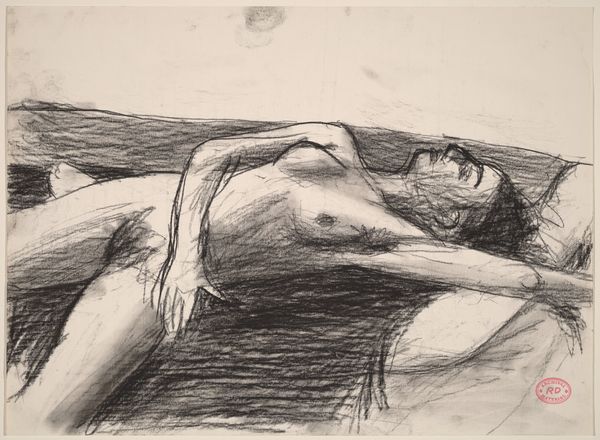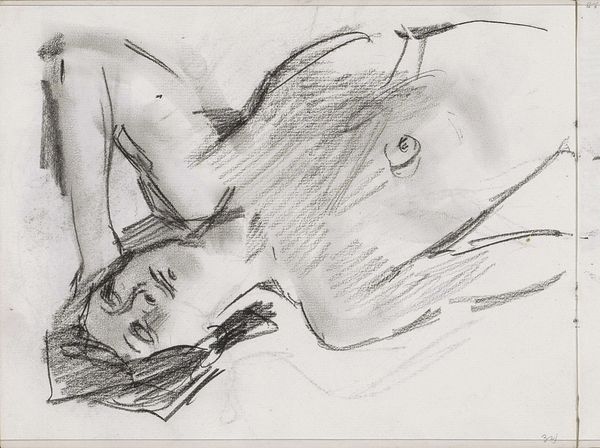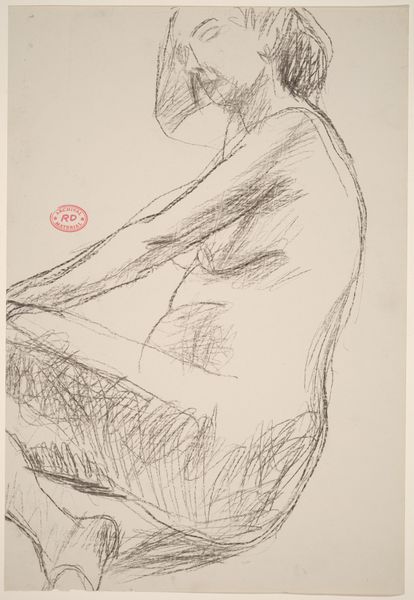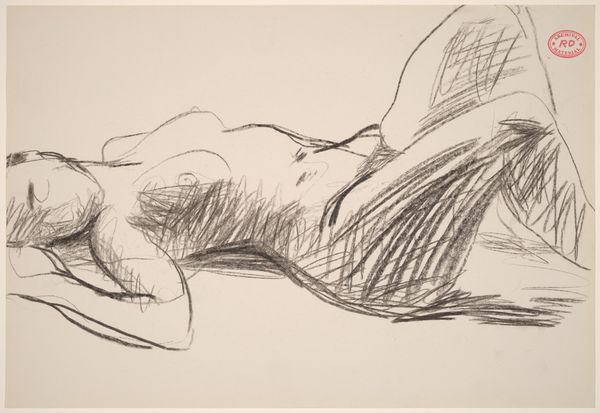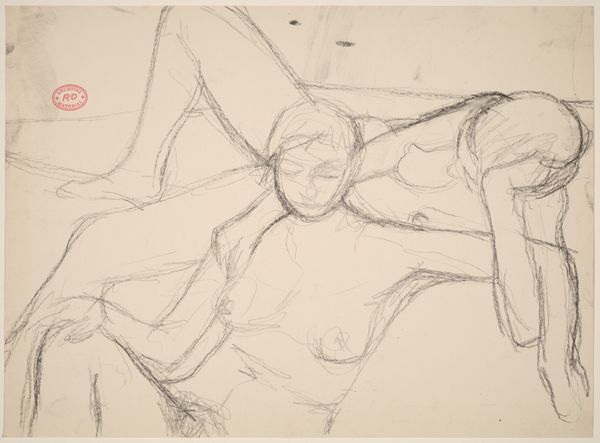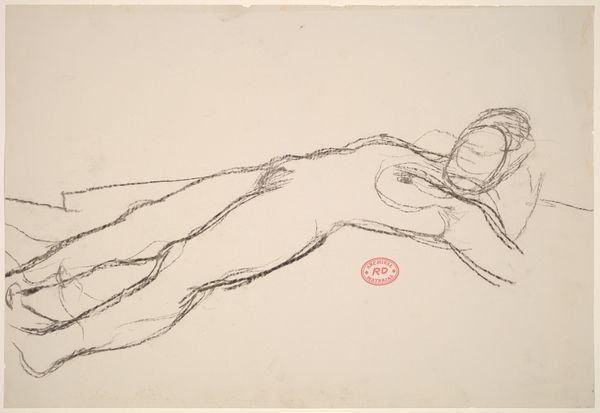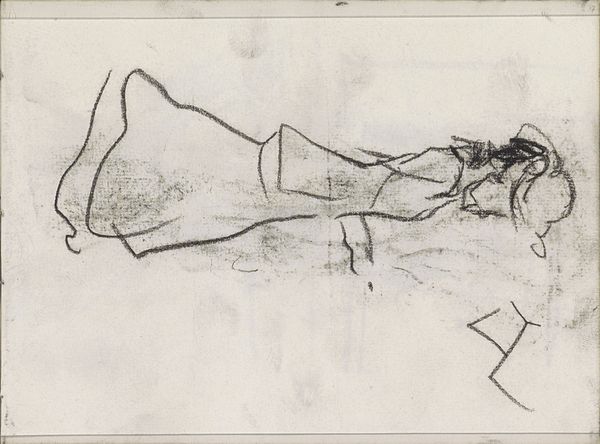![Untitled [reclining nude with her right hand behind her head] by Richard Diebenkorn](/_next/image?url=https%3A%2F%2Fd2w8kbdekdi1gv.cloudfront.net%2FeyJidWNrZXQiOiAiYXJ0ZXJhLWltYWdlcy1idWNrZXQiLCAia2V5IjogImFydHdvcmtzLzE1ZTQ4N2IwLWRmYzUtNGZlYy05MjdkLWIxMWRmZTMyNDU5Yy8xNWU0ODdiMC1kZmM1LTRmZWMtOTI3ZC1iMTFkZmUzMjQ1OWNfZnVsbC5qcGciLCAiZWRpdHMiOiB7InJlc2l6ZSI6IHsid2lkdGgiOiAxOTIwLCAiaGVpZ2h0IjogMTkyMCwgImZpdCI6ICJpbnNpZGUifX19&w=3840&q=75)
Untitled [reclining nude with her right hand behind her head] 1955 - 1967
0:00
0:00
drawing, pencil
#
portrait
#
drawing
#
ink drawing
#
pencil sketch
#
figuration
#
bay-area-figurative-movement
#
pencil
#
nude
Copyright: National Gallery of Art: CC0 1.0
Editor: We're looking at Richard Diebenkorn’s "Untitled [reclining nude with her right hand behind her head]," a pencil and ink drawing from the late 1950s to mid-60s. I'm struck by the casual pose and the stark contrast of light and shadow. What stands out to you? Curator: Beyond the immediate aesthetic impression, I see a commentary on the evolving representations of women during that period. The nude form, a classical subject, is rendered with a raw, almost unfinished quality. It begs the question: is Diebenkorn challenging traditional, often idealized, portrayals of women? How might this drawing engage with feminist perspectives emerging around that time? Editor: So, it's less about beauty and more about...challenging the male gaze? Curator: Precisely! The woman isn't overtly sexualized; she’s simply *there*. Consider the social and political climate; the burgeoning feminist movement was beginning to dismantle established power dynamics. The artwork might be seen as participating in that broader cultural shift. What impact does the rough texture and incomplete linework have on how we interpret her agency and objectification in this image? Editor: I see what you mean. The loose lines create a sense of vulnerability but also authenticity, pushing against more polished and controlled depictions. Do you think that's intentional? Curator: It’s difficult to ascertain Diebenkorn’s exact intentions, but we can analyze how the formal elements – line, shadow, composition – create specific meanings within that historical moment. We should avoid reading artworks outside of the context of cultural change, power dynamics, gender, and identity of the period. Editor: That gives me a whole new lens for seeing the drawing. It's not just a nude; it’s a statement, or at least, an open question. Curator: Exactly. Art is a constant conversation, reflecting and refracting the world around it. It provides a window into cultural dynamics.
Comments
No comments
Be the first to comment and join the conversation on the ultimate creative platform.
